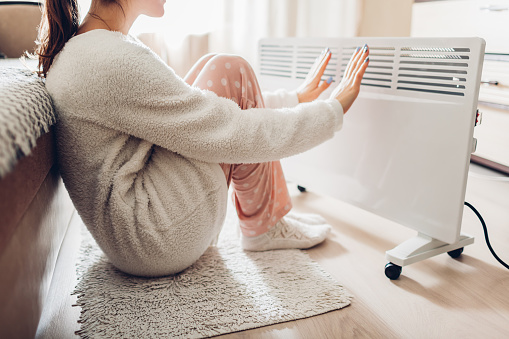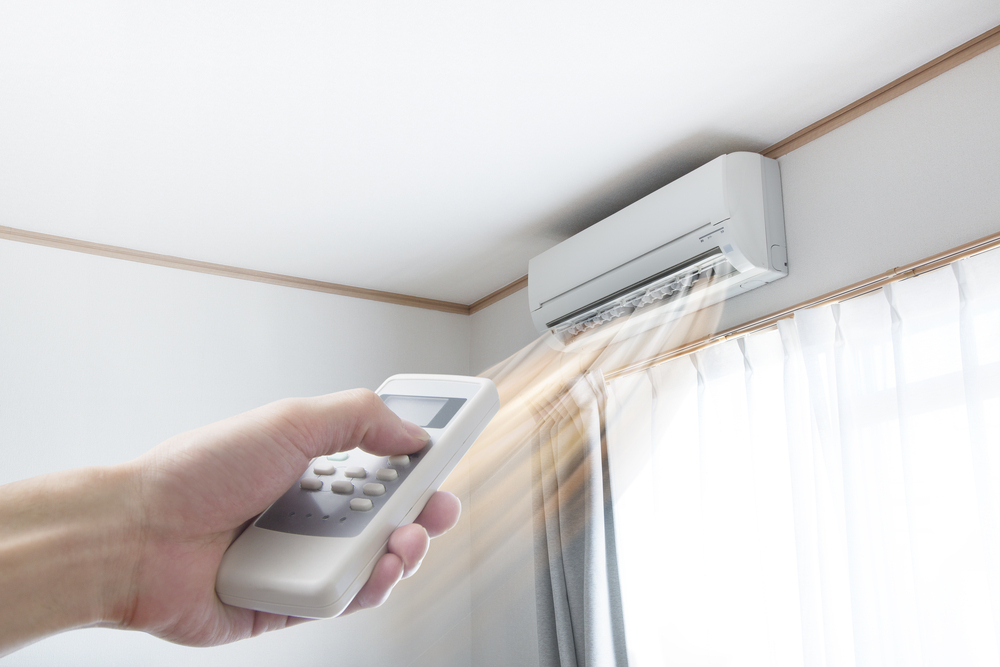The spike in your electricity bill from winter heating is a myth and here’s why – including tips to save money on electricity
- Replies 9
Most of us dread the winter season because no one enjoys bracing for the freezing weather… To make things worse, our electricity bills also skyrocket during the cold months as we scramble to keep our homes toasty. Or do they?
There are several ways to keep your electricity bills to a minimum and it all boils down to your choice in home heating.
Your read that right – your heating habits in winter are likely the biggest contributors to a spike in your electricity bill. The fact that it takes more energy to heat a space than cool it down means that issues such as a lack of insulation lead to a higher electricity bill.
But don’t fret as some methods are better (and cheaper) than others. Surprisingly, the most cost-efficient way to heat a space is through a reverse cycle air conditioner instead of other forms of heating like a portable electric heater or a gas heater.

Your choice of heating determines your electricity bill. Source: iStock
Energy Adviser Tim Forcey said that the appliance is the ‘cheapest option.’
‘I can’t believe how many homes I have visited where air conditioners are kept off in favour of other forms of heating,’ he said.
‘We have so thoroughly demonised the use of air conditioners that the message hasn’t got through: airconditioning is the cheapest option.’
According to a report made by Finder, they discovered that on average, operating a reverse-cycle air conditioner costs around 85 cents per day. On the other hand, the average electric heater sums up to $2.32 a day, while the average gas heater sets you back $2.76.
This means that on average, an electric or gas heater costs $1.69 more per day to run in comparison to using a reverse-cycle air conditioner. Throughout the entirety of winter, that adds up to $155.48.
Mr Forcey explained that reverse-cycle air conditioners possess the ‘magic of heat pumps which takes heat from the outside and brings it into your home.’
This saves more energy than electric or gas heaters mainly because these appliances use your energy supply to create heat, which then warms up your home.
He also shared little tricks to improve the appliance’s airflow such as regularly cleaning the filter of the air conditioner. This allows it to operate more efficiently, so it can use less energy and accomplish the same task of heating your home smoothly.

Make the switch! Source: This Lady Blogs
Tamara DiMattina from the sustainable lifestyle group, The New Joneses, previously revealed a couple of budget-friendly ways to retain heat inside of your home for longer. She said that curtains can offer insulation and protection from night-time chills, as can simple products like door snakes.
And if you’re willing to splurge on a home upgrade, double glazing your windows can also save up to 40 per cent more on electricity, as it prevents draughts from seeping in the cracks around your doors or the other way around – your windows from expelling heat.
‘All of that heat you’re paying for is going to go rushing outside, and the cold is going to come rushing inside,’ Ms DiMattina detailed.
The bottom line is that portable electric and gas heaters are not only more expensive to purchase – especially compared to a wall-mounted reverse cycle air conditioner – but they’ll also potentially cost you more in the long run.
The Australian Energy Council stated that winter electricity bills can soar by $200 due to heating. They also determined that the perfect, cost-efficient winter heat setting is 19 degrees Celsius.
‘It is estimated that every degree over 20 degrees can add 10 per cent to energy use,’ they said.
What do your heating habits look like? Have you tried experimenting with a reverse-cycle air conditioner? Share your thoughts with us in the comments!
Learn more about reverse-cycle airconditioners by watching the video below:
Source: ConservationACT
There are several ways to keep your electricity bills to a minimum and it all boils down to your choice in home heating.
Your read that right – your heating habits in winter are likely the biggest contributors to a spike in your electricity bill. The fact that it takes more energy to heat a space than cool it down means that issues such as a lack of insulation lead to a higher electricity bill.
But don’t fret as some methods are better (and cheaper) than others. Surprisingly, the most cost-efficient way to heat a space is through a reverse cycle air conditioner instead of other forms of heating like a portable electric heater or a gas heater.
Your choice of heating determines your electricity bill. Source: iStock
Energy Adviser Tim Forcey said that the appliance is the ‘cheapest option.’
‘I can’t believe how many homes I have visited where air conditioners are kept off in favour of other forms of heating,’ he said.
‘We have so thoroughly demonised the use of air conditioners that the message hasn’t got through: airconditioning is the cheapest option.’
According to a report made by Finder, they discovered that on average, operating a reverse-cycle air conditioner costs around 85 cents per day. On the other hand, the average electric heater sums up to $2.32 a day, while the average gas heater sets you back $2.76.
This means that on average, an electric or gas heater costs $1.69 more per day to run in comparison to using a reverse-cycle air conditioner. Throughout the entirety of winter, that adds up to $155.48.
Mr Forcey explained that reverse-cycle air conditioners possess the ‘magic of heat pumps which takes heat from the outside and brings it into your home.’
This saves more energy than electric or gas heaters mainly because these appliances use your energy supply to create heat, which then warms up your home.
He also shared little tricks to improve the appliance’s airflow such as regularly cleaning the filter of the air conditioner. This allows it to operate more efficiently, so it can use less energy and accomplish the same task of heating your home smoothly.
Make the switch! Source: This Lady Blogs
Tamara DiMattina from the sustainable lifestyle group, The New Joneses, previously revealed a couple of budget-friendly ways to retain heat inside of your home for longer. She said that curtains can offer insulation and protection from night-time chills, as can simple products like door snakes.
And if you’re willing to splurge on a home upgrade, double glazing your windows can also save up to 40 per cent more on electricity, as it prevents draughts from seeping in the cracks around your doors or the other way around – your windows from expelling heat.
‘All of that heat you’re paying for is going to go rushing outside, and the cold is going to come rushing inside,’ Ms DiMattina detailed.
The bottom line is that portable electric and gas heaters are not only more expensive to purchase – especially compared to a wall-mounted reverse cycle air conditioner – but they’ll also potentially cost you more in the long run.
The Australian Energy Council stated that winter electricity bills can soar by $200 due to heating. They also determined that the perfect, cost-efficient winter heat setting is 19 degrees Celsius.
‘It is estimated that every degree over 20 degrees can add 10 per cent to energy use,’ they said.
What do your heating habits look like? Have you tried experimenting with a reverse-cycle air conditioner? Share your thoughts with us in the comments!
Learn more about reverse-cycle airconditioners by watching the video below:
Source: ConservationACT







